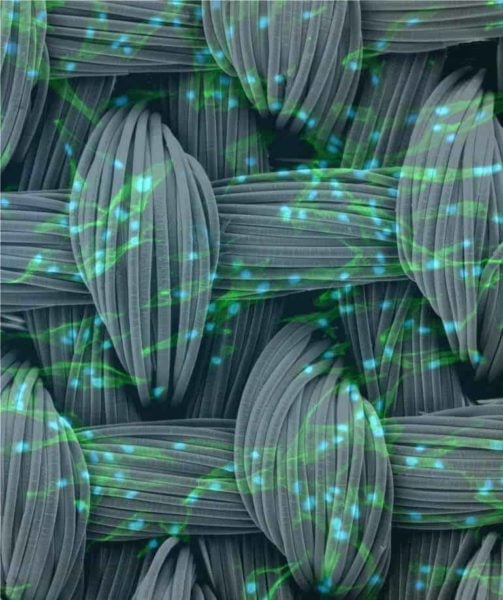Stem cells in bone marrow need to produce hydrogen sulfide to properly multiply and form bone tissue, according to a new study from the Center for Craniofacial Molecular Biology at the Ostrow School of Dentistry of USC.
Professor Songtao Shi, principal investigator on the project, said the presence of hydrogen sulfide produced by the cells governs the flow of calcium ions. The essential ions activate a chain of cellular signals that results in osteogenesis — the creation of new bone tissue — and keeps the breakdown of old bone tissue at a proper level.
Conversely, having a hydrogen sulfide deficiency disrupted bone homeostasis and resulted in a condition similar to osteoporosis — weakened, brittle bones — in experimental mice. In humans, osteoporosis can cause bone fractures, mobility limitations and spinal problems. More than 52 million Americans have or are at risk for the disease.
Future treatments possible
However, Shi and his team demonstrated that the mice’s condition could be rescued by administering small molecules that release hydrogen sulfide inside the body. The results indicated that a similar treatment may have potential to help human patients, Shi said.
“These results demonstrate hydrogen sulfide regulates bone marrow mesenchymal stem cells and restoring hydrogen sulfide levels via nontoxic donors may provide treatments for diseases such as osteoporosis, which can arise from hydrogen sulfide deficiencies,” Shi said.
The study was published online on April 10 in Cell Stem Cell. The work was supported by grants from the National Institute of Dental and Craniofacial Research, National Institutes of Health, Department of Health and Human Services (grant numbers R01DE017449 and R01 DE019932), from the National Natural Science Foundation of China (81222011) and from the Science and Technology Activities of Beijing Overseas Students Preferred Foundation.



This new research could be more credible if it could be proved to serve as a treatment for osteoporosis and bone marrow tissue, however the fact that stem cell harvesting still holds a lot of risks and disadvantages such as that the patients cells have to be removed before transplant, transplant which requires radiation and immunosuppression.There is also the risk that the patients immune system could attack the stem cells itself.
It is also difficult to find the exact same cell type needed and to raise more questions there also lives the possibility that some stem cells can form tumors after transplant. the notion that there is high risk in the use of stem cells still stand, so can’t scientists produce some supplements that contain hydrogen sulfide that can work on humans? because at the end of the day the could be a possibilty that this possible treatment showed positive results when tested on mice but does not have the same positive effects on humans. There is a lot of doubt in this possible treatment, so I think more research, experiments and credible evidence needs to be provided by scientists before it is approved.